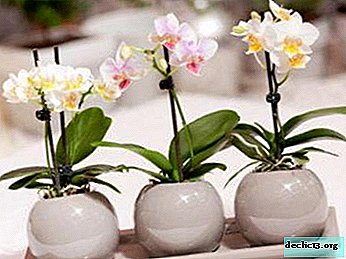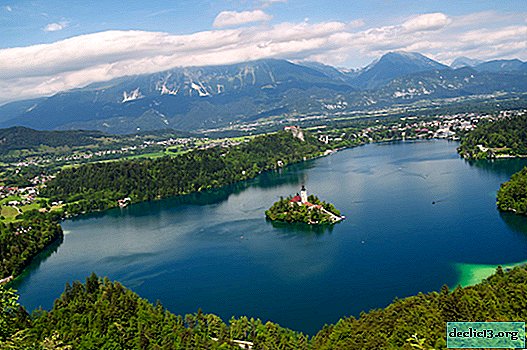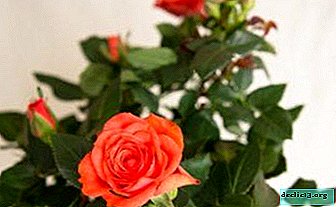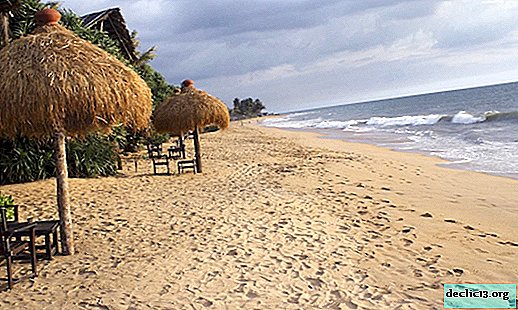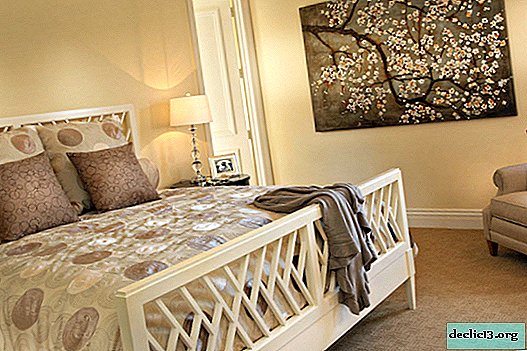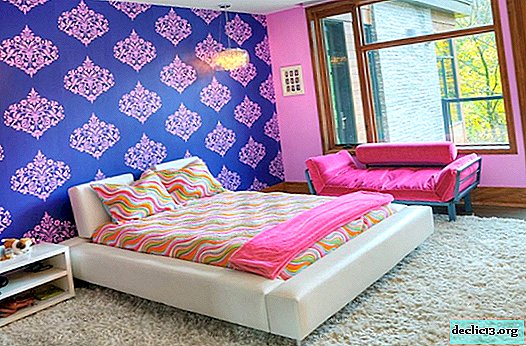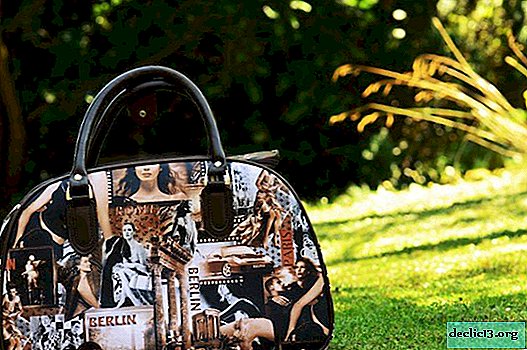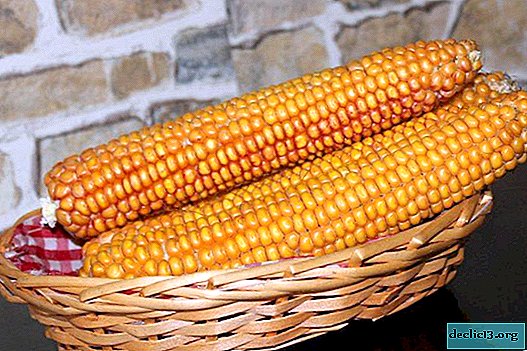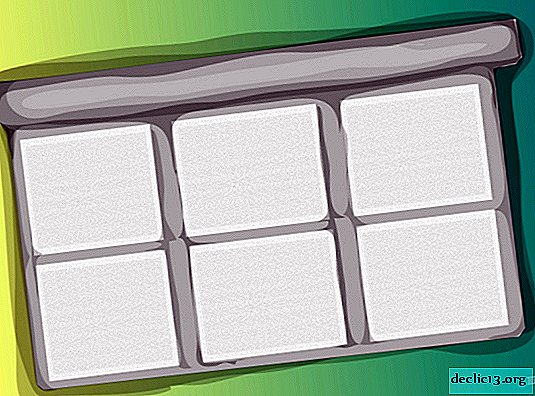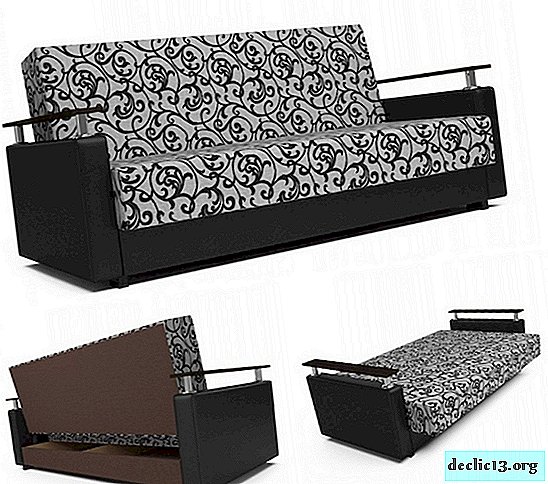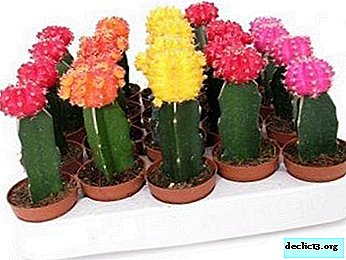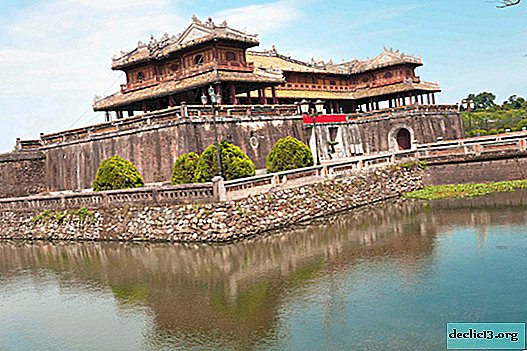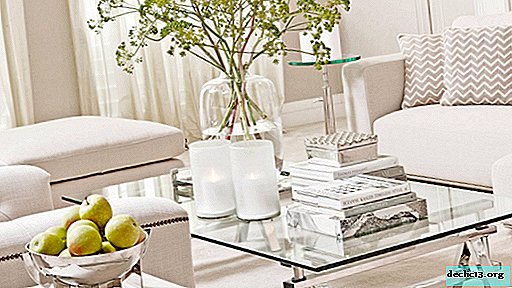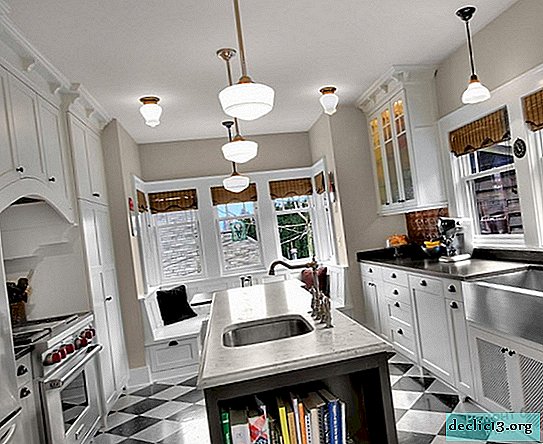Novelties bed covers, and the nuances that are worth remembering
Arriving home in the evening, I want to be in a cozy, warm and beautiful bedroom. A key role in creating the necessary atmosphere in the room is played by the bedspread, since it is the first thing that catches your eye. Leaving the choice of this bedding without proper attention, you can spoil the impression of even the most stylish and expensive interior.
Fabric Features
Choosing the right fabric for the bedspreads is not easy, especially considering the wide variety of options. Each material has external features, operational characteristics, advantages and disadvantages, which should be taken into account when choosing, because you want the cover to last more than one month.
Material classification according to composition:
- natural - cotton, silk, bamboo, wool, natural fur and so on. Among the obvious advantages of such fabric for bedspreads, one can distinguish: environmental friendliness, pleasant sensations to the skin, good ventilation. The disadvantages are quick wear, washing problems, deformation, easy creasing, can cause allergies, high cost. Almost every natural fabric has a synthetic counterpart;
- synthetic materials - acrylic, microfiber, fleece, viscose, faux fur. Their advantages are elasticity, high strength, constancy of shape, wear resistance, preservation of color brightness and attractive appearance, low cost. Among the shortcomings are the inability to pass air and absorb moisture, not always pleasant tactile sensations;
- mixed materials - a combination of natural and synthetic fibers together. This is almost an ideal option that combines the advantages of the main types.
But on sale we come across names of fabrics whose composition is not always familiar. They can be divided into several groups according to the main distinguishing feature - surface quality:
- smooth fabrics from a mix or cotton - percale, calico, satin, poplin;
- embossed fabrics of wool, cotton or a blend - jacquard, tapestry;
- printed fabrics from a mix, synthetics, silk - satin, brocade, silk;
- fabrics with a fleecy surface of any composition - fur, plush, velor, velvet.
- polyester synthetic fibers - velsoft, microfiber, fleece. This option is not very suitable for creating a stylish interior, since the material allows you to create pretty thin and simple in appearance fleece bedspreads. It is used more often for cots.
Some of the most popular and favorite materials are:
- silk - in this capacity you will not often find it, because it is expensive, and leaving seems rather troublesome. Nevertheless, a silk bedspread is a dream of many, as it has many advantages: high strength, excellent appearance over time, safety, a wide range of colors and patterns, therapeutic effect. The only disadvantage of the material is its high cost;
- Cotton bedspreads are the most common option. They are hypoallergenic, easy to care for, inexpensive, natural. The disadvantage is the tendency to fade. Linen fabrics have similar properties;
- satin bedspreads can be made of silk or on artificial or cotton basis - the cost of the product will depend on this. The material is cheaper than silk, but practically inferior to it in beauty. In addition, it has useful properties that allow it to be used for children and allergy sufferers. Problems can only occur with washing, so professional dry cleaning is recommended for the fabric;
- bamboo bedspreads became known to us not so long ago, but in vain - they are hygroscopic, soft, eco-friendly, the fabric is dense and does not wrinkle. The only drawback is that the material is not suitable for rooms with high humidity;
- if the bedspread for the bedroom is made of tapestry, then it’s almost impossible to find any imperfections - it erases perfectly, retains shape and color well, is a classic and fits almost any interior. Of the pluses, it is also worth noting environmental friendliness, a diverse design and a wide range. The only limitation in their use is that the tapestry bedspread does not look very appropriate in small rooms;
- a fluffy bedspread looks expensive and even luxurious, but will last a short time. After a couple of washings or constant lying on them, a fluffy blanket quickly loses a presentable appearance and attractiveness, the pile "falls off". A variation of this design can be called a plush version of the bedspread, or a product made of a material called "grass";
- the fur cover, it doesn’t matter if it is made from natural fur or artificial, looks very elegant and gives the room a unique comfort, but there are pitfalls here. First of all, a fur bed covers dust very much - this can cause allergies. It is almost impossible to wash it yourself - you have to use dry cleaning services.
Such a rich composition of fabrics is an advantage of the modern weaving industry. Combining several types of fibers, it is possible to achieve the necessary characteristics, rich texture and various density of the material of the bedspread.
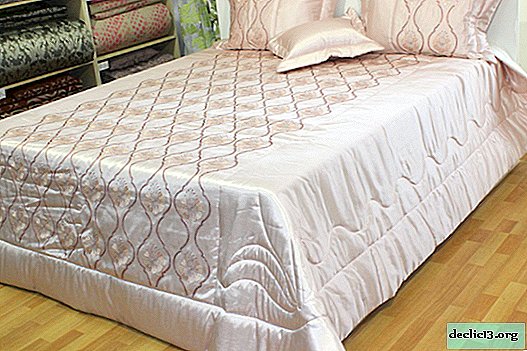 Satin
Satin Bamboo
Bamboo Tapestry
Tapestry Fur
Fur Cotton
Cotton Silk
SilkModels and cut
Unlike color and style diversity, models of bedspreads rarely represent any new items. There are a small number of basic ones:
- rectangular - the most common model of bedspreads, outwardly similar to a large thick sheet on the bed. There are several types, for example, single-layer or double-layer. Their main difference will be material and thickness. Single-layer ones are usually sewn from thick and dense fabrics, and double-layer ones are sewn from thinner and more natural ones;
- the two-sided model of the bedspread allows not to distinguish between the sides - there is no wrong side. The material of manufacture can be the same or different - they differ in color and texture. On pillows in this case, it is recommended to sew the same bilateral covers;
- cover - if the bed is made of expensive wood, decorated with carvings or other beautiful decor, represents a podium, then the model of the bedspread often choose an unusual one - in the form of a cover. In total, 2 of their species are distinguished. The first looks like a cover and is sewn at most 10 cm more than the height of the mattress. The second is on an elastic band, which allows you to tuck the edge under the mattress, as if it is completely inside the cover. The latter is great for catwalk beds, and the former is for everyone else. It is necessary to choose such a model strictly by parameters;
- a bedspread with a gap - is an unusual model with a wide frill from 3 sides. Such an unusual product is usually chosen for tall beds. Height allows the bedspread to perfectly show itself and show imagination in the design - for example, the upper part can be made of silk, and the hanging part can be made of chiffon.
Of course, it may be necessary to have a blanket on a round bed of non-standard dimensions - then individual tailoring is recommended, since it is almost impossible to find suitable options for industrial production.
 Two sided
Two sided With supervision
With supervision Case
Case Rectangular
RectangularPossible sizes
How to choose a bedspread for a bed and not make a mistake in size? Since most beds have standard dimensions, bedspreads are also encouraged to choose according to these standards .:
- for children, bedspreads are available in the following sizes - 75/80; 100/120; 110/140;
- one and half bed - 140/200;
- on the double - 170/210;
- Euro - 200/220 and Euro maxi - 220/240 or 240/260.
All dimensions shown are in centimeters. With non-standard dimensions of the bed, it is recommended to sew a blanket to order.
It’s pretty hard to imagine exactly what the purchased item will look like in bed, so it’s better to do the calculations in advance. It will be necessary to determine several parameters of the existing bed - its length, height, width. Now we add from 20 cm or more to the width - this is the most optimal option that allows you to cover bedding.
If you need to hide the mattress, then measure its height and add centimeters to allowances to the size. There are lovers of turning a sleeper into a "pedestal", which is covered with a king-size plaid. In this case, the width is measured taking into account the allowance to the floor. It is fashionable if the bedspread even drags a little on the floor - we add another 10 cm.
The latter option is not suitable for all bed models - if the frame protrudes from the mattress at a distance of more than 5 cm, then you should choose another option. A large ledge will be visible under the coverlet, which looks pretty tasteless. It should be borne in mind that most modern beds have a headboard, so there is no increase in centimeters on this side.

Patterns and prints
How to choose a bedspread for a bed depending on the pattern is no less important issue than size, cut. Bedding is not influenced by fashion trends to the extent that everything else. Their design is quite constant, not counting small changes in color preferences, materials. There are several main areas in the patterns that are relevant at the moment:
- knitted models of bedspreads have recently gained popularity, but they are not going to give up positions for a very long time. This is not surprising - they bring a sense of comfort and warmth to the room. If the plaids are plain, then it is necessary to knit coarse or with a relief pattern. In the case of a multi-colored option, motives should be preferred. First of all, handicrafts are appreciated, and by them it should immediately be visible - not quite even loops, blemishes in the pattern are welcome. From the material you can choose pure wool, synthetics or cotton yarn;
- the patchwork veil was previously considered to be the lot of the poor, because for the creation of products, scraps of fabric were used. Nowadays, very expensive materials with a smooth or embossed surface, which are assembled from separate rags in the form of a mosaic, are often used to create bedspreads in the patchwork style. They look very stylish, but are not suitable for all interior styles;
- floral, floral motifs on bedding are still in demand, but their appearance changes slightly, along with new products in design. Only the bedspread in the Provence style remains unchanged, perhaps. Light colors, floral pattern, natural fabrics - a cozy bedroom is ready;
- a white bedspread on the bed is one of the most stylish options that will look good in any interior;
- complex combinations of shades are very in demand, but suitable ones are selected for each style - these can be beautiful bright stripes, a cage, flowers and so on. The only exception to all this multicolor - the print in the form of snake skin is no longer relevant;
- quilted models of bedspreads allow you to achieve several goals at once - to show in the most favorable light the texture of the material, its pattern, to give additional volume to the product. Thus, you can process almost any plaid, which consists of 3 layers: lining, filler, decorative material;
- Turkish bedspreads have long been fond of thanks to a wide range, but the waffle model made of cotton is especially interesting. It is a very interesting texture in the form of a volumetric cell;
- ruffles and ruffles on bedding are particularly suitable for classic-style interiors. If earlier these parts were placed only along the edge of the bedspread, now it can be completely covered by them and look very stylish.
When choosing the appropriate variant of the bedspread, you should definitely focus on the style of the room’s interior, otherwise harmony will not work.
 White
White Knitted
Knitted Patchwork
Patchwork With ruffles
With ruffles Quilted
Quilted Flower
Flower Bright
BrightColors and combination rules
The bedspread should be of a certain color, as it will create or complement a certain mood in the bedroom. When choosing a suitable gamut, several factors should be considered:
- in the bedroom it is recommended to use soothing shades, if this does not contradict the general style of the interior;
- which side of the room is located - if it is the north side, where there is almost no sun, then it is advisable to give preference to warm tones, if the south - then cold;
- the size of the bedroom: if it is spacious, then you can make a bright accent using a purple or red cover, if small, choose light shades that visually expand it;
- style and gamma of the interior.
Most often, to get a good result when choosing the color of the bedspreads, it is recommended to use one of three schemes:
- to the tone of the walls - this does not mean that a blue cover is necessary for the blue walls - blue, dark blue, that is, differing in several shades, will do;
- to the tone of the interior palette - from all the interior colors, the dominant one is selected, to which the fabric of the bedspread on the bed should correspond;
- in tone of curtains - this technique is usually used, but you should not sew these products from one fabric - this is an outdated technique. At a minimum, they should be of different shades, or have an excellent pattern.
Of course, the choice of color depends entirely on the taste of the owners of the room, their preferences, but now it is worth paying special attention to the "natural" shades - they are in trend. This is the natural palette that surrounds us - mushroom, earthy, rich pure colors: eggplant, navy, black.
Gray bedspreads are especially popular - from “wet asphalt” to light, like a shade whitened from time to time. The plain cover in this gamut, with filler and stitching, looks especially advantageous.
Modern bedspreads are represented by a large assortment of models and color schemes, but this is only at hand, because you can choose the best option for your bedroom.
Video
Photo
































